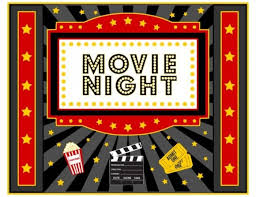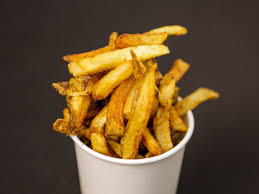8/18/2020
·Enable high contrast reading
Secret Dairy, or How We Handle Surprise Plot Twists

All we wanted was a simple night out at the movies. Two weeks after the death of my son, my husband and daughter and I were raw with grief, so we thought “Arrival”, a science fiction movie about aliens landing on Earth, would be just the distraction we needed.
Unfortunately for us, loss was an unexpected driver of the story, and it was wrenching to watch the lead character experience visions about the illness and death of her young daughter. As those scenes unfolded, we looked at each other incredulously – “Really? Can’t we get a break from all of this?” We stayed for the rest of the movie, but it was most definitely not the fun escape we craved.
We walked out of the theater feeling exhausted and triggered, and it was the beginning of the phenomenon we have since dubbed “secret dairy”.
So, I should explain that term – it’s a joking reference to my daughter’s dairy allergy, and our years of decoding ingredient lists and menu items for signs of cheese or cream. We developed strategies for anticipating where dairy might not be explicitly stated – like pasta dishes (cheese) or soups (cream) or even frozen chicken pot pie (milk protein). We learned that if the description included terms like “silky” or “rich”, it was likely something to avoid.
Two years later, you’d think we would have learned our lesson. But there we were at the intermission of the musical “Dear Evan Hansen” wondering again “What are we doing here?!” We felt gut punched during the first act about the death of a teenaged boy and the aftermath for his parents and sister. I blame myself since I was the one who recommended this ill-advised theater outing. Needless to say, we weren’t much able to appreciate the innovative staging and Tony award-winning music. The only good news was that it was less wrenching by this time, and we were able to laugh at the harsh irony over a glass of wine.
I’ve noticed that it’s not just stories directly about grief that tap sensitive places.
It seems that death is often used as a device to ratchet up the intensity of the plot or to propel character development. In HBO’s “Westworld”, the death of a character’s son, and his persistent sadness drives his obsession with the humanlike robots. His grief was sensitively portrayed, and the magnitude of the loss felt necessary to the narrative. I appreciated that it illuminated unspoken motivations and made the character and the eerie story more relatable.
On the other hand, the action movie “Nonstop” built grief into the lead character’s backstory as a cheap shorthand in place of authentic complexity. He was a tortured soul after the death of his daughter, and the cascade of poor choices and bad luck pushed him to become cynical and violent. The story feels false, and it makes me resent both the lazy storytelling and disrespectful treatment of something truly tragic. Instead of adding depth, the device created hollow intensity for just another formulaic movie — definitely not worth the emotional energy.
In a recent Netflix documentary, Brene Brown discusses a similar challenge she heard in interviews with people who have survived tragedies for her signature work about vulnerability.
She uses down-to-earth humor backed by serious research to consider the perspective of people who have endured terrible things – mass shootings, genocide, and the death of a child. Hearing that list, I was too rattled to continue watching and literally turned off the television. It’s not that I didn’t know losing my son was a horrific, life-shaking experience, but somehow hearing it in that context was unnerving.
Once I resumed, I was struck by her findings about the nature of compassion for people who have survived those types of unthinkable events. Her research found that survivors do NOT want other people to avoid the subject of their tragedy, and they DO want others to express their gratitude for their own life gifts. So the mother who loses a child wants people to talk openly about their children, both because it demonstrates their lesson of gratitude drawn from her grief, and because it gives permission for that mother to continue to talk about the child she lost.
I respect the nuance of this insight, and it relates to how I view stories that touch on grief and loss. Done well they encourage deeper, compassionate understanding; done poorly they feel like a cheap trick that disrespects the gravity of my experience.
So, in my family we approach new stories much like we do Italian restaurants. They could be enjoyable, but we like to check a few details to be sure it’s what we can handle. If the Netflix synopsis includes terms like “moving journey” or “life-changing lessons”, it raises warning flags. It’s not that we always want to avoid drama in favor of silly rom-coms or cooking shows. We just want to be forewarned about the cream in the pasta sauce.
The reality of life after loss is that the reminders are already everywhere.
I think of my son when I smell the French fries from his favorite burger spot, or hear Queen on the radio, or watch our favorite zombie television show. His presence permeated my whole life, so the reminders are also ubiquitous. And I have learned that grief can sneak into my day without a predictable trigger, sometimes from banal places. As unsettling as those reminders can be, they are also precious because they help me feel closer to him.
In retrospect, the movie “Arrival” now resonates deeply for me, and I admire the lead character’s bravery. Not because of how she made first contact with the aliens, but because she knew that she would face every parent’s worst nightmare, and still said “Despite knowing the journey and where it would end, I still welcome every moment.” I absolutely agree…
Caryn Anthony is a nonprofit consultant and executive coach from Silver Spring, MD, and is also chair of the Patient and Family Advisory Council for Children’s National Medical System. She is the author of “Any Way the Wind Blows,”—a blog geared for families raising a child with a significant medical condition. Her writing has also appeared in The Huffington Post, Grown and Flown, and Modern Loss.








